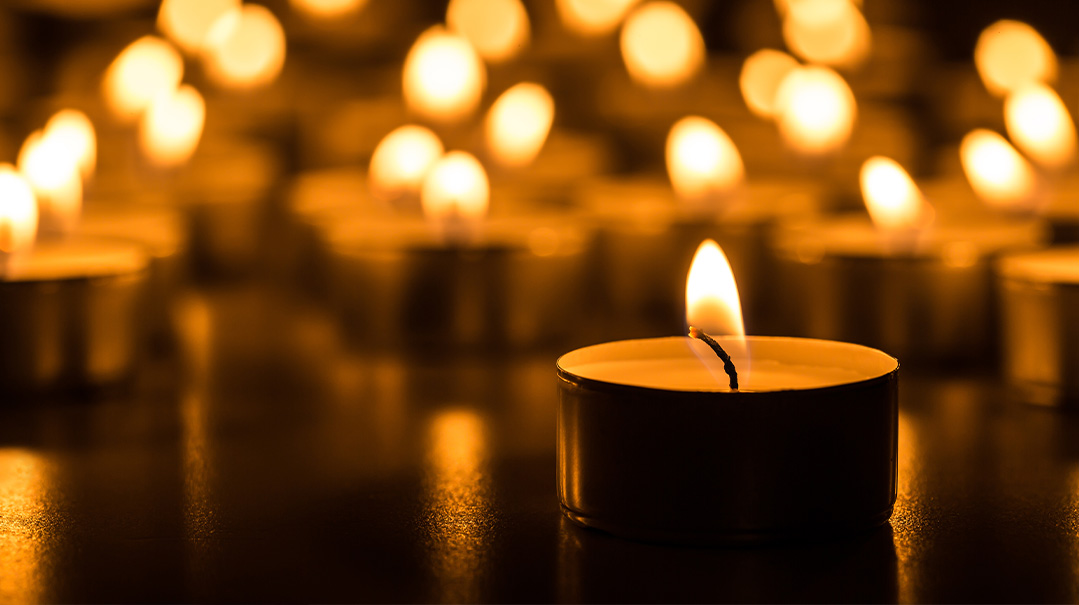A Question of Modesty

“In a democracy, according to Barak, courts are placed above the government”
M
uch of the greatest damage in history has been done by those who were convinced that they were smarter than just about anyone else, and, in many cases, the damage has been even greater when the person or persons in question were, in fact, almost as smart as they thought they were. Calvin Coolidge, one of America’s most underrated presidents, once said, “It is a great advantage to a president, and a major source of safety to the country, for him to know that he is not a great man. When a man begins to feel that he is the only one who can lead this republic, he is guilty of treason to the spirit of our institutions.”
Judge (and professor) Richard Posner explains what Coolidge meant: “The preference of many left-wing intellectuals derives from their basic contempt for democracy,” which allocates equal votes to the intelligent and stupid alike. Similarly, they find market economies irrational because they give equal weight to the economic decisions of the bright and the not-so-bright. Far better central planning by experts.
“It is natural for [those intellectuals] to fancy themselves as people who see clearly through the muddle....” Posner continues. “They see that things could be better; they are frustrated by their powerlessness to make things better, and this attracts them... to political solutions that involve the imposition of order from the top down.”
FORMER COURT PRESIDENT Aharon Barak is, by common agreement, a brilliant man. He is not, however, a modest one. As Judge Robert Bork once observed, “He establishes a world record for judicial hubris.”
Barak believes that Israel would be as “democratic” if he, or trusted lieutenants, made every major decision facing Israeli society. For democracy, in his view, is the advancement of certain human rights no less than it is a system of lawmaking by representatives of the people who stand for election at regular intervals.
Though his writings are filled with contemptuous descriptions of politicians of all levels, and strictures about the impossibility of the branches of government checking themselves, those strictures apply only to the elected branches, not to the judiciary.
Barak (and his successors) typically treated statutes enacted by the Knesset as little more than the “first drafts that the Court is free to rewrite,” adding provisions not found and removing explicit ones, according to Posner. For instance, Basic Law: The Knesset provides that after the government has fallen in a no-confidence motion but before a new Knesset has been elected and sworn in, the Knesset speaker at the time of the government’s fall remains in his position.
Yet when that situation arose, after the fall of the previous Netanyahu government, the Court ordered the Knesset speaker to convene the plenum to choose a successor. He resigned rather than do so. In another case, the Court added four more categories of persons eligible for citizenship to the Citizenship Law, effectively rewriting the statute.
In his discussions of statutory intent, Barak showed scant interest in the legislative intent of MKs, focusing instead on the “objective intent” of the law, by which he means what the law should have said. The judge’s task is to “bridge the gap between law and society” and to ensure that the law fits harmoniously with the “spirit or values of the legal system as a whole,” according to Barak.
The first goal, observes Posner, is barely intelligible — Isn’t the statute the law, not just an intermediary to the law? — and the second requires the judge to interpret statutes in light of his personal ideal legal system, since in reality no legal system has a unitary spirit or common set of values.
Current Court President Esther Hayut proved herself a full-fledged devotee of her predecessor in a speech shortly before ascending to her current role. She described the judge’s task not as applying the law but rather one of bridging “the gap between the law and what is right.”
“Discovering the secret… ‘spice’ [for doing so] is perhaps one of the greatest tasks that lies before us as judges,” she said. In short, the High Court judges are not bound by the law, in a positivist sense, but also must determine what is right or just. Whatever the nature of the “secret spice” for doing so, it lies in the realm of the judge’s subjective opinions.
American judges, writes Posner, distinguish between their personal opinions of the wisdom of a particular statute and its constitutionality. But following Barak’s reasonableness test for all government actions (“put simply... an unreasonable act is an unlawful act”), it would be very hard to tell whether a judgment of unconstitutionality by a High Court of Barak acolytes “is anything more than the judges’ opinion that it was a dumb statute they would not have voted for if they were legislators.”
OVER THREE DECADES, Barak created an Israeli judicial system that maximized the power of the Israeli High Court under his leadership. His success made him a venerated figure in elite law schools around the world, for he had shown the way for judges to rule without the messy business of having to convince hundreds of thousands, if not millions, of less enlightened beings of the wisdom of their choices.
In his writings, Barak describes a world in which “every human behavior is subject to a legal norm.... There is no act to which the law does not apply.” His determined efforts to expand the jurisdiction of the Court, by doing away with traditional common law doctrines of standing and justiciability, follow directly from that vision.
For Barak, a corollary of that vision is that judges are those best equipped to ferret out those legal norms governing every human action, even though doing so will carry them far afield from the traditional judicial task of interpreting statutes. And where will they discover those legal norms? Barak answers cheerfully that the requisite exercise of judicial discretion will be determined largely by the judge’s “worldview,” which in turn is “influenced by his personality, education, and emotional makeup.” In short, those determinations will be largely subjective.
Amazingly, Barak is not even embarrassed to acknowledge that the values that the judge seeks to import into the legal system are not those about which there is a wide societal consensus, but rather those of “the enlightened population in whose midst he sits.” The “enlightened” will include “judges, law professors, lawyers, maybe even one or two legislators.”
But the further and further judges wander from their traditional legal tasks, the more they are trafficking in moral intuitions. Presumably, few were trained as moral philosophers, but even had they been, it is unlikely that Israeli society ever contemplated being governed by a group of Platonic Guardians.
When everything is law, nothing is law. As the late Court deputy president Menachem Elon warned Court President Barak at one point, “He who judges too much judges not at all.” The “rule of the judge is substituted for the rule of law.” Or as Chaim Herzog, former president and father of Israel’s current president, wrote in his autobiography, “In a democracy, according to Barak, courts are placed above the government. In my humble opinion, this approach endangers the very basis of democracy.”
Once it is understood how broad is the sweep of authority that Barak claimed for the Court to impose the values of a narrow substratum of the population on the entirety of Israeli society, then the question asked repeatedly by the late Professor Ruth Gavison — Who appointed you “the supreme moral authority in society”? — becomes unavoidable.
Gavison, incidentally, serves as the anti-Barak, when it comes to intellectual modesty. A woman of fierce intelligence, she frequently noted that her personal values were closer to those of Barak and his colleagues than to many of his critics. She was one of the founders for the Association for Civil Rights in Israel.
Where she differed sharply, however, was in her unwillingness to accept imposition of those values by judicial fiat rather than fight for them in the halls of the Knesset:
Justices in Israel are... selected based on their professional ability as jurists. There is nothing in their training that gives them the right, the authority, or the ability to be the setters of moral codes or to be the teachers of the generation.
Her wise counsel is sorely missed.
Next week, an examination of the values imposed by the Court.
(Originally featured in Mishpacha, Issue 950. Yonoson Rosenblum may be contacted directly at rosenblum@mishpacha.com)
Oops! We could not locate your form.







